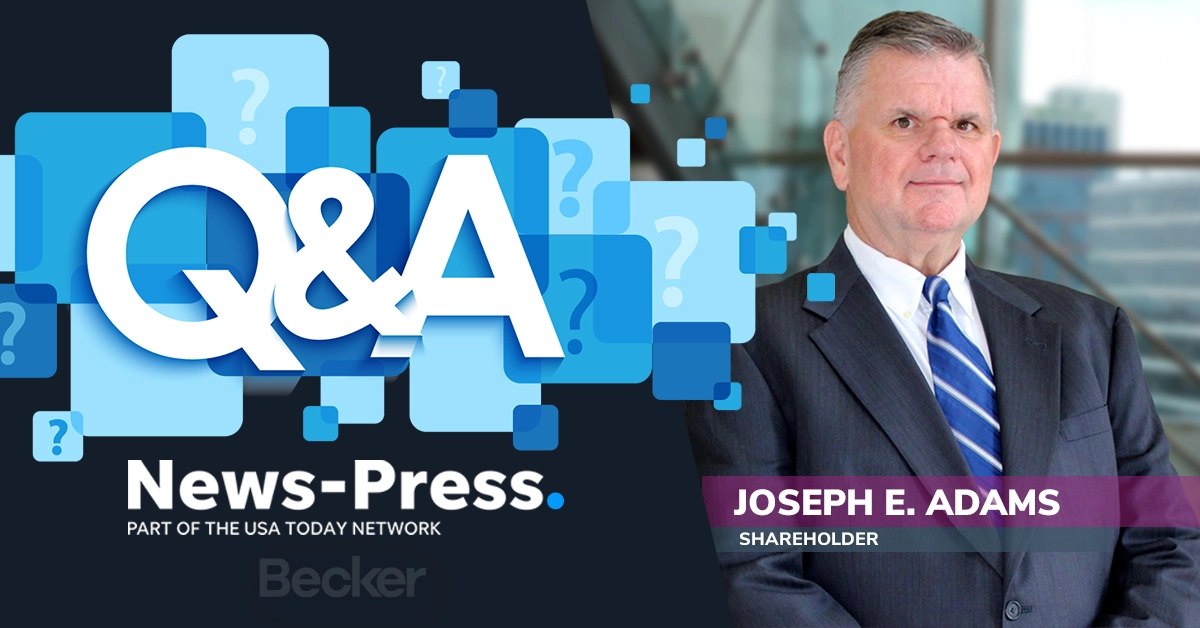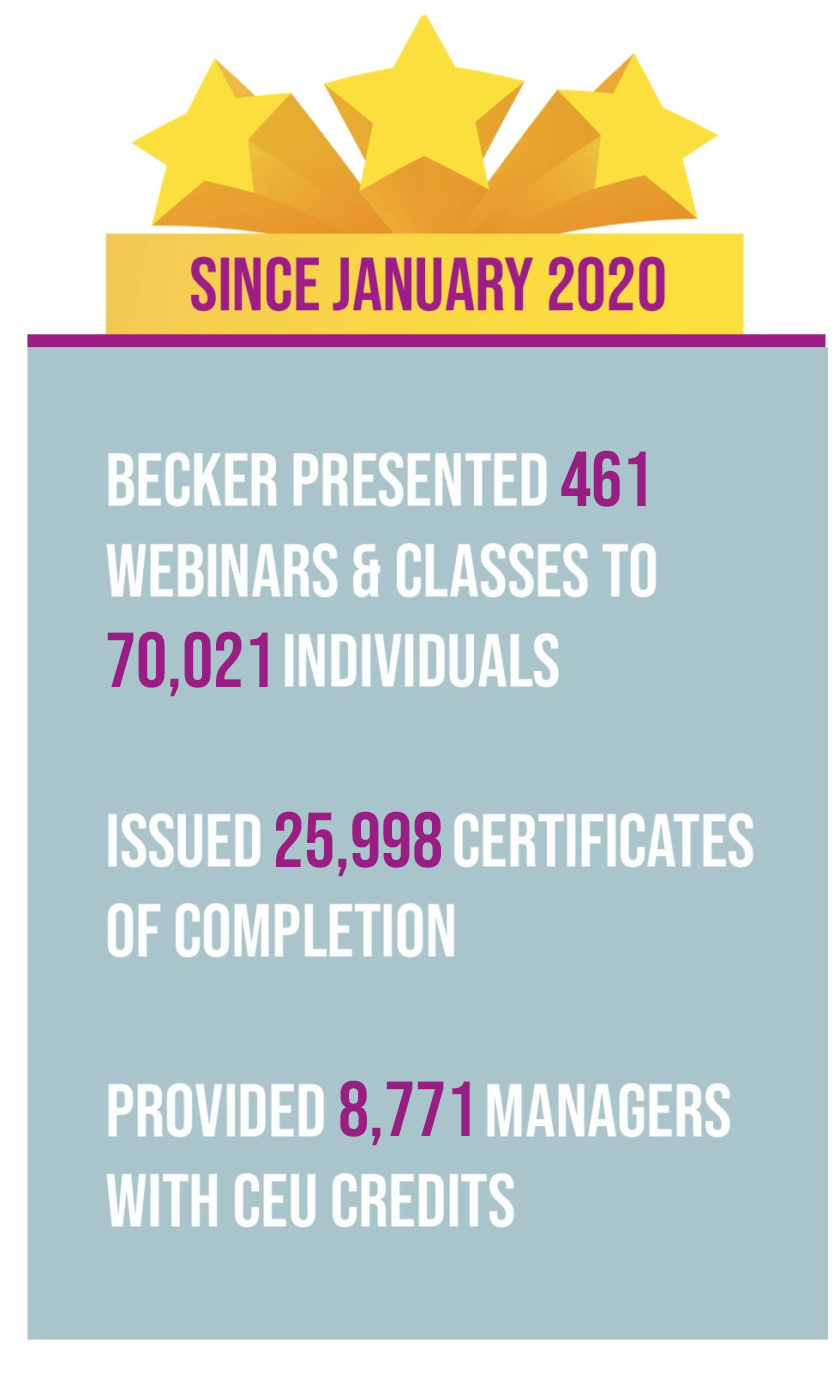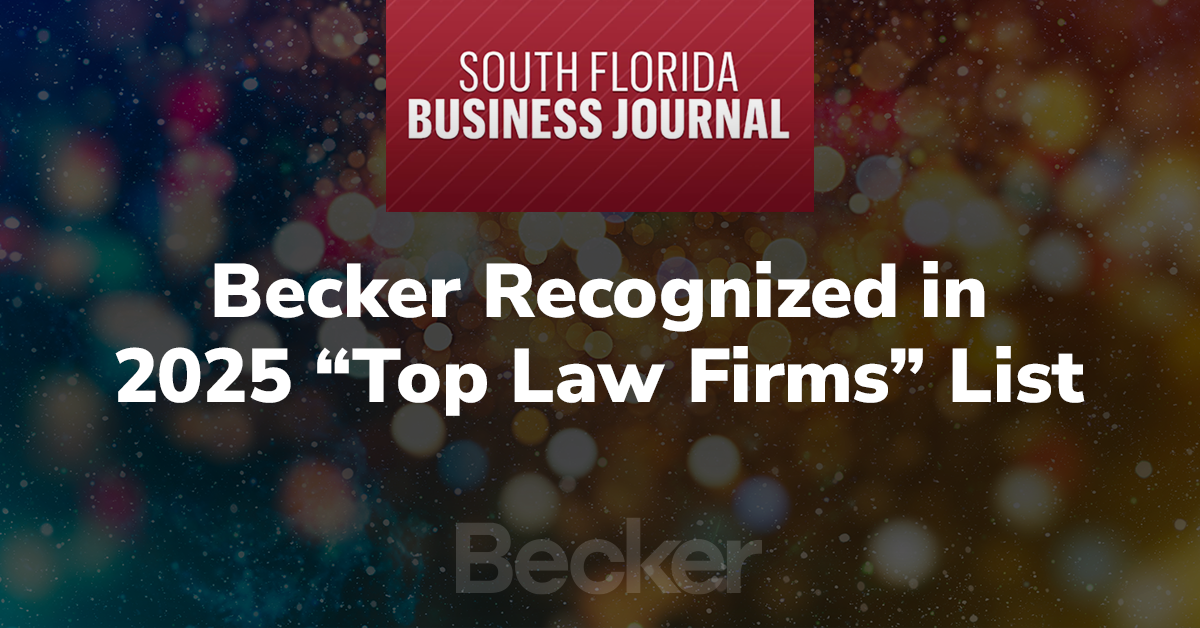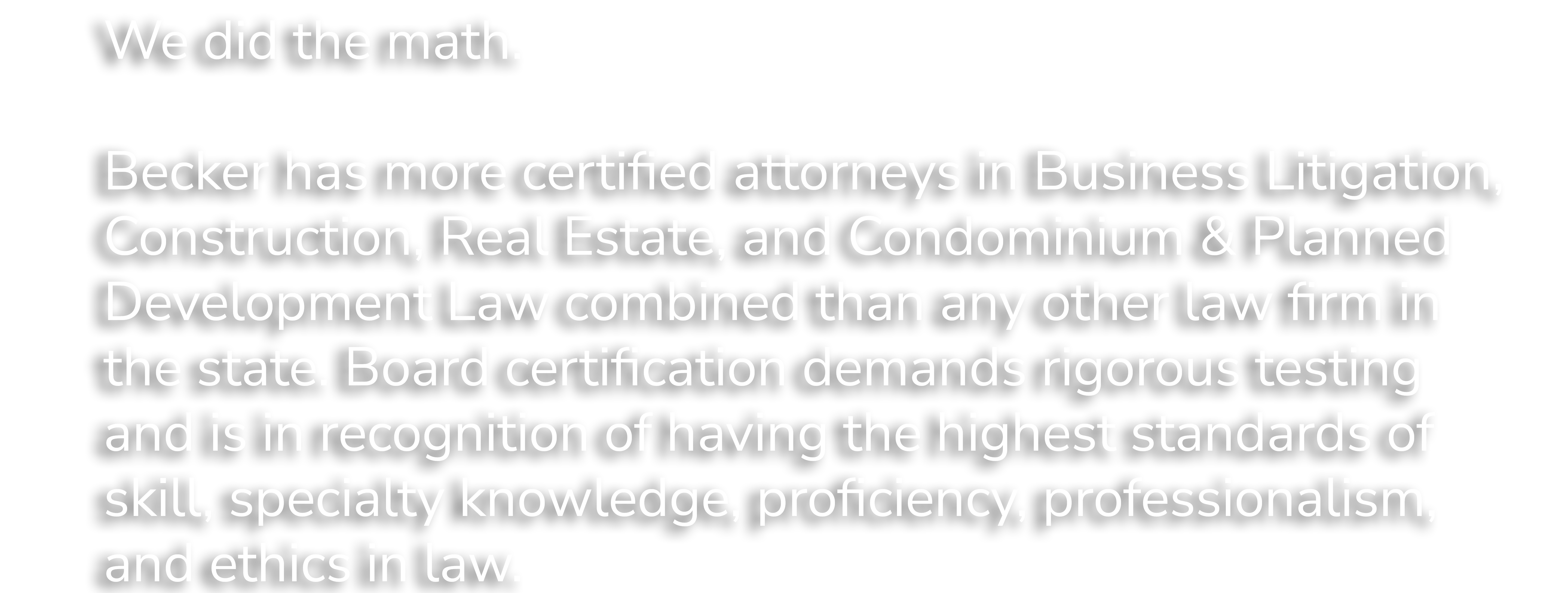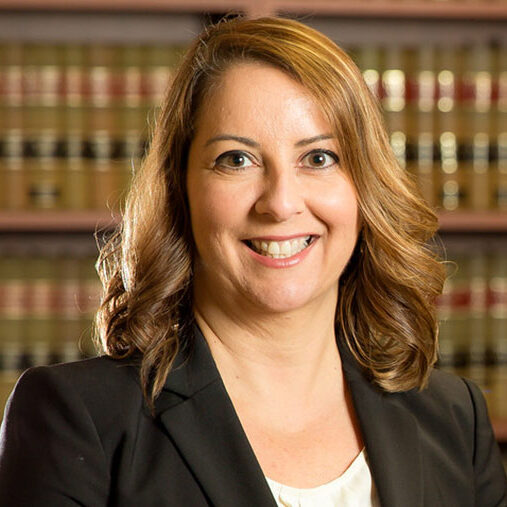This year promises to be filled with new opportunities to grow together as a community. Whether you’re considering implementing a new rule, looking for helpful tips to overcome budgeting challenges, or need to simplify your voting process, we’ve got you covered. Don’t miss our featured podcast episode which provides a candid look at life within a condominium association.
Social media, which provides an instantaneous platform to a large number of “viewers,” can wreak havoc in community associations. Jennifer L. Biletnikoff provides strategies that may help prevent your community from going “viral” in, “Perils and Pitfalls of Social Media in Community Associations.”
The Fair Housing Act (FHA) prohibits discrimination based on familial status, which includes families with children under 18. As such, condominiums and homeowner’s associations may face legal challenges if they have rules restricting children’s use of community facilities, unless they qualify as a 55+ community. Michael O. Dermody explains everything you need to know in, “Can 55+ Communities Avoid Compliance With Federal Laws Which Prohibit Age and Familial Status Discrimination?”
As aging condominiums in Florida face rising maintenance costs and deteriorating infrastructure, the possibility of termination and redevelopment is becoming a more viable option. Joseph Arena offers valuable advice on the legal and political complexities surrounding the termination process in, “Condominium Termination: Don’t Let the End Catch You by Surprise.”
Associations should regularly review their declarations and rules to avoid exceeding the authority granted to them. Joseph Markovich provides a pivotal reminder for condominium and homeowners associations to ensure that their rules align with their governing documents in, “THIS CASE: Charterhouse Associates, LTD., Inc. v. Valencia Reserve Homeowners Ass’n, Inc.”
Articles
Perils and Pitfalls of Social Media in Community Associations
Social media has transformed the way people communicate. In restaurants you can look around and see people “dining together” while on their cell phone. I was at a movie theater this weekend and even noticed the white glow of cell phone screens lighting up during the film. Social media, which provides an instantaneous platform to a large number of “viewers,” can wreak havoc in community associations, especially in situations where members of a community association create a “neighborhood” Facebook page or social media group. It is important to understand the potential pitfalls associated with social media use in community associations in order for board members to implement strategies that may help prevent the community from going “viral.”
In 1988, Congress added “familial status” – defined to include those family groups with children under 18 – to the list of protected groups under the Fair Housing Act (“FHA”). Since that time, condominiums and homeowner’s associations have been discovering that their various rules regulating or prohibiting youngsters’ use of the association’s facilities may run afoul of this area of federal anti-discrimination law. Rules once considered common — that is, rules which employ a specific age to regulate minor residents’ use of the pool, gym, or other areas — can result in legal action against the association. To accommodate FHA guidelines and remain enforceable, such restrictions should be re-crafted by legal counsel to specifically address an identifiable concern related to the specific activity, rather than prohibiting its use by a specific age group. However, this protection against age discrimination does not apply in all cases.
Condominium Termination: Don’t Let the End Catch You by Surprise
By: Joseph Arena
We all know how condominiums begin—with renderings, design and finishing selections, friendly sales agents, and, of course, so many documents. However, once a condominium becomes an aging project, particularly one rife with escalating maintenance needs and expenses, it is worth considering how the condominium may be terminated. As background, multi-family dwellings reflecting a shared investment in infrastructure and underlying lands can be tricky to terminate both politically and legally because the owners involved have not agreed ahead of time as to how and when the project’s end will come, and differing attitudes on the subject can pervade. Nevertheless, Florida is beginning to have aging condominium projects in sufficient numbers to provide a basis for the study of when the optimal time to terminate might be and what factors should drive the exploration of termination and redevelopment options.

Charterhouse Associates, LTD., Inc. v. Valencia Reserve Homeowners Ass’n, Inc.
262 So.3d 761 (Fla. 4th DCA 2018)
By: Joseph Markovich
Understanding invitees and licensees is at the heart of THIS CASE. Homeowners in the Valencia Reserve community invited a personal trainer to accompany them to the homeowner association’s (HOA) fitness center. The HOA, having enacted a rule prohibiting private trainers from working in the fitness center, argued that the trainer was a licensee who could be excluded. However, the homeowners claimed the trainer was their invitee, permitted under the HOA’s declaration.
The declaration allowed owners, their guests, and invitees access to the fitness center. Despite this, the HOA enforced its rule, leading to a legal dispute. The trial court sided with the HOA, but the appellate court disagreed, focusing on the proper classification of the personal trainer under Florida law.
The appellate court found that the trial court incorrectly used an “economic benefit test” to classify the trainer as a licensee due to their paid services. Instead, the court emphasized that the “invitation test” was the correct standard. The evidence showed that the trainer was expressly invited by the homeowners, was present only when they were, and did not seek business from other residents, making them an invitee under the declaration. This meant that the trainer’s presence was in line with the purposes outlined in the HOA’s declaration, which granted invitees access to the fitness center. As a result, the HOA’s rule prohibiting private trainers was found to be in direct conflict with the declaration.
This case serves as a pivotal reminder for condominium and homeowners associations to ensure that their rules align with their governing documents. Associations should regularly review their declarations and rules to avoid exceeding the authority granted to them. Property owners should also be fully aware of their rights under the declaration, particularly concerning the invitation of guests and professionals to use association property.
If you are uncertain whether your governing documents have sufficient language to authorize Board enacted rules and regulations, consulting with your association’s legal counsel can help clarify these complex issues and draft rules that are enforceable and aligned with the community’s governing documents.
QUESTION OF THE MONTH
Q: My condominium association is considering implementing a new rule. They are unsure if the new rule can be applied retroactively to violators who broke the rule before it was enacted. If the board decides to enforce this rule, would they need to amend the bylaws, or can they implement and enforce this retroactively on their own?
Budgeting Challenges
FLCAJ Magazine
By: Howard J. Perl
The old Bob Dylan song is certainly appropriate to today’s community association industry. Hurricanes, floods, insurance rates, and new laws have combined to form what could be called the “perfect storm” to devastate association budgets, and in particular condominium and cooperative budgets. While the “perfect storm” applies in some respects to homeowner associations, this article will focus on condominium and cooperative associations and how your association can face these changes and adapt while attempting to control skyrocketing assessment increases.
CALLING ALL BOARD MEMBERS AND COMMUNITY MANAGERS
As leaders in Community Association Law, we not only helped write the law – we also teach it.
Did you know Becker provides over 200 educational classes per year throughout the State of Florida on a variety of topics ranging from board member certification to compliance, and everything in between? Our most popular classes are now available online! To view our entire class roster, visit: beckerlawyers.com/classes
Becker’s NEW 4-hour Board Certification courses are now available! Don’t miss out on this convenient opportunity to stay informed and compliant! Because of the administrative burden involved in processing certificates and CEU credits, Becker will be charging non-clients and managers a nominal fee to take the 4-hour course. Clients may take the course free of charge. To take our new Board Certification class and/or to see the full roster of all of our online course offerings, click here.
For questions regarding our Classes, please see our FAQ page here.
Can They Do That?
Becker’s “Can They Do That” video series tackles some of the unique problems that homeowners and renters face today. We answer your questions, no matter how far-fetched they may seem. From service animals to nudists in your community, we get to the bottom of it and let you know – “Can They Do That?”
Becker Steps Up to the Mic with Podcast,
‘Take It To The Board with Donna DiMaggio Berger’
Think you know what community association life is all about? Think again. Residents must obey the rules, directors must follow the law, and managers must keep it all running smoothly. Take It To the Board explores the reality of life in a condominium, cooperative or homeowners’ association, what’s really involved in serving on its board, and how to maintain that ever-so-delicate balance of being legally compliant and community spirited. Leading community association attorney Donna DiMaggio Berger acknowledges the balancing act without losing her sense of humor as she talks with a variety of association leaders, experts, and vendors about the challenges and benefits of the community association lifestyle. Don’t have a streaming app? You can now find all episodes on YouTube! Click here to listen now.
RECENT EPISODES:
-
- Redesigning Golf– Teeing Up a Discussion on Golf Course Communities with Golf Course Architect Erik Larsen
- Mastering Construction Contracts: Essential Insights with Steve Lesser
- Community Association Insights with Industry Leader Dawn Bauman of the Community Associations Institute (CAI)
- Navigating the Stormy Landscape of Disaster Recovery and Insurance with Wayne Srsen and Kelly Kuhn
- A Guide to Impact-Resistant Windows and Doors
- Addressing Florida’s Condo Crisis and How to Fix It
- Transforming Your Corporate Culture with Motivational Speaker & Author Chris Dyer
- The Impact of Rentals on Community Associations with David Muller, Vice Chair of Becker’s Community Association Practice
- Life on The Other Side – A Resident’s Candid Take on Condo Living and Community Governance
Life on The Other Side – A Resident’s Candid Take on Condo Living and Community Governance
Everyone knows that boards and management are the decision makers in community associations—but what’s it like to be on the receiving end of those choices?
In this week’s episode of Take It To The Board, host Donna DiMaggio Berger flips the script with a guest who provides a candid look at life within a condominium association where he believes things are going awry. To protect his privacy and avoid potential backlash, his identity is concealed, and he’s referred to as “Bob.” A retired attorney with four decades of executive-level experience in public companies, Bob brings a unique and thought-provoking perspective to the table.
Facilitating Community Participation via Electronic Voting
FCAP Managers Report
By: Karyan San Martano
In many community associations, voter apathy is a real issue with members not returning proxies and not attending meetings. This does not only impact elections, but also other membership votes, such as amending the governing documents and voting on material alterations. Simplifying the voting process for owners can go a long way to facilitating membership participation in the voting process.
DID YOU KNOW?
Becker Recognized in SFBJ’s 2025 “Top Law Firms” List
We are pleased to announce Becker has been ranked in the South Florida Business Journal’s “Top Law Firms in South Florida” list for 2025. The list ranks South Florida law firms by number of lawyers, partners, and total staff. Becker has been named in the top 25 ranks every year since 2017.




